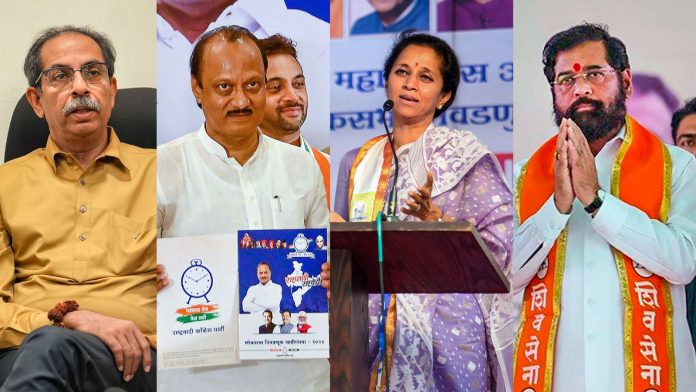In Maharashtra’s political arena, dynastic politics is a prevalent trend, with nearly 34% of candidates fielded by major parties having familial political legacies. Despite increasing criticism, parties continue to prioritize dynastic candidates, especially among women, aiming to bolster their electoral prospects.
The upcoming Lok Sabha elections in Maharashtra are characterized by a significant presence of political dynasts, with 34% of candidates from prominent parties boasting familial political backgrounds. This phenomenon reflects a global trend where political families wield considerable influence, impacting democratic processes.
The Bharatiya Janata Party (BJP), contesting the highest number of seats, leads in fielding dynastic candidates, with 13 out of 38 candidates hailing from political families. Similarly, the Nationalist Congress Party (NCP), led by Ajit Pawar, follows closely, with half of its candidates having political legacies. The Shiv Sena, under Eknath Shinde’s leadership, also embraces dynastic politics, with 40% of its candidates boasting familial ties.
Despite recent rhetoric against dynasticism, its prevalence persists, attributed to its perceived advantages of efficiency and cohesiveness among legislators. However, critics argue that it perpetuates power concentration and corruption, hindering inclusivity in politics.
Globally, political dynasties are commonplace, with debates revolving around their impact on governance. While proponents highlight efficiency and electoral accountability, opponents emphasize the risk of oligarchy and exclusion of non-dynastic candidates.
In Maharashtra, political legacies also influence the selection of female candidates, with 82% of women fielded by major parties coming from political families. This underscores the intertwining of gender and dynastic politics in electoral strategies.
As Maharashtra braces for elections, the prevalence of political dynasties underscores the complex interplay between tradition, power dynamics, and electoral strategy in shaping the state’s political landscape.
#DynasticPolitics #MaharashtraElections #PoliticalLegacies #GlobalTrends #GenderRepresentation #ElectoralStrategy #PowerDynamics


